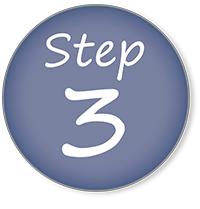


Here you will find answers to some of our most frequently asked questions. If you have a question that is not answered here, or you read anything you don’t fully understand, please do not hesitate to contact us with any questions that you have.
If you do not have an established account with us, we accept Visa, Mastercard, Cheque, Money Order, Bank Wire, E-Transfer and Cash.
Your horse will need two pieces of paperwork. #1) a negative Coggins test and #2) a Health Certificate clearing the horse for interstate travel. The Coggins must be dated within one year and the Health Certificate must be dated within 30 days of DELIVERY date. Both pieces of paper come from a veterinarian. We cannot accept Coggins or Health Certificates that will expire during the trip. If that does happen, we are required to obtain the proper paperwork for transport. In that case, the customer will be charged for any, and ALL, veterinary bills, which usually entail, but are not limited to: veterinary farm call, a rushed Coggins test, a new Health Certificate, and a $50 inconvenience fee. PLEASE check the date on all paperwork as we are calling to schedule the horse. Also, Brand Inspections are required for horses leaving Brand Inspection states only. Please see “Does my horse need a Brand Inspection” for more information.
All quotes are made by our office. Prices are determined by number of horses shipped and the location we are shipping too.Please fill out our Get Quote form and we will send you a quote via email shortly thereafter. You may also call us in the office at 1-902-807-0021 for a quote immediately by phone. Please have the town or location for your horses journey, and the age, breed, and gender of the horse ready when you call.
Payment may be made by credit card, cashiers check, or cash upon pick-up or delivery.
*Please note: We do not accept personal checks.
Scheduled route shipments must be cancelled 24 hours prior to pick up, otherwise the customer shall be responsible for the full shipping charge.
Private charter and special shipments require a 10% deposit at the time of booking in order to reserve a rig(s) for a specific date. Any change dates or cancellation for shipments must be made 7 days prior to the scheduled ship date or the deposit will be forfeited. The customer can be charged the full price of the charter if the shipment is cancelled within 24 hrs prior to the ship date.
Yes, we are licensed with the Federal Highway Safety Authority and the Department of Transportation. Insurance for horse(s) shipped shall be provided by the owner or we can assist you with qualified insurers to cover your shipment.
That is completely up to the customer and shipper. We do not mind if a horse is shipped with leg wraps or boots, but we do have some procedures in place to care for horses that are. First, if the wraps/boots start to come off, we will take ALL the wraps/boots off that horse, and deliver them as tack with the horse. (The customer will not be charged for tack in this instance.) Also, if the horse comes though our Pilot Point layover facility and stays with us longer than a couple of hours, we will take the wraps/boots off the horse when it comes off the truck. We will not let a horse stand in a stall wrapped for an extended period of time. (Unless it is for a medical reason and we’re given instructions.) The horse will then continue the second leg of it’s trip, unwrapped/booted. We will not re-wrap/boot the horse ourselves. If you would like for your horse to be re-wrapped/booted, we can totally make that happen, but we will have to call our veterinarian to do it and the customer will incur a $100 wrapping fee.
In our experience, horses that are NOT used to being wrapped/booted, do better NOT being wrapped/booted. It only causes them more stress and could cause them more harm, which is the opposite of what wraps/boots are trying to achieve. For most of the horses we ship, they are on the AIR-RIDE semi-trucks. This means that their ride is much smoother, more comfortable, and less stressful, than that on a regular horse trailer. Therefore, in most cases, the need to wrap/boot their legs is much reduced.
No, due to the safety of all horses and drivers, we cannot ship tack at this time.
Beware of unlicensed horse haulers.
Within the last year or so, with the economy continuing to spiral downward, we have received a large increase in e-mails and phone calls from horse owners regarding “unlicensed carriers” operating within the industry. And with every horror story we hear, it is getting harder to let this go unnoticed.
When you are shopping around for a carrier, you should always make sure they are licensed and insured. Not just in the state of origin, but also in the states in transit. Carriers who are licensed and insured are federally regulated and have to meet set standards on how they operate and maintain their equipment. Also their drivers are held to very strict regulations, such as hours a driver can drive on one shift. That is why most commercial carriers run team drivers. Regulated carriers must qualify drivers for experience and training. This also includes mandatory drug and alcohol testing.
Always ask about the carrier’s equipment. You don’t want to be promised an air ride tractor-trailer and not get it, especially for long distances. There is a big difference between air ride and spring ride and your horse will feel the difference. Many people will use goosenecks and will say there is no difference, but that is not true. Yes, we do use goosenecks, but only for short hauls, which minimizes the effects.
People interested in shipping their horse should also ask for references and be sure to check them. At the very least it will give you reassurance that somebody else has had a good experience. You never know, that reference could help you out with something else in the future.
Beware of carriers who ask for a deposit before they even pick up the horse. Most legal carriers ask for a prepayment or a C.O.D. and this is usually only when the customer does not have an established account with the company. The difference between the two is simple. A prepayment is when you pay the carrier while the horse is on the van while a deposit is just to reserve the spot before the truck even leaves. We have all heard the story of someone paying a deposit and the truck never shows up.
With the economy like it is, you can’t take that chance